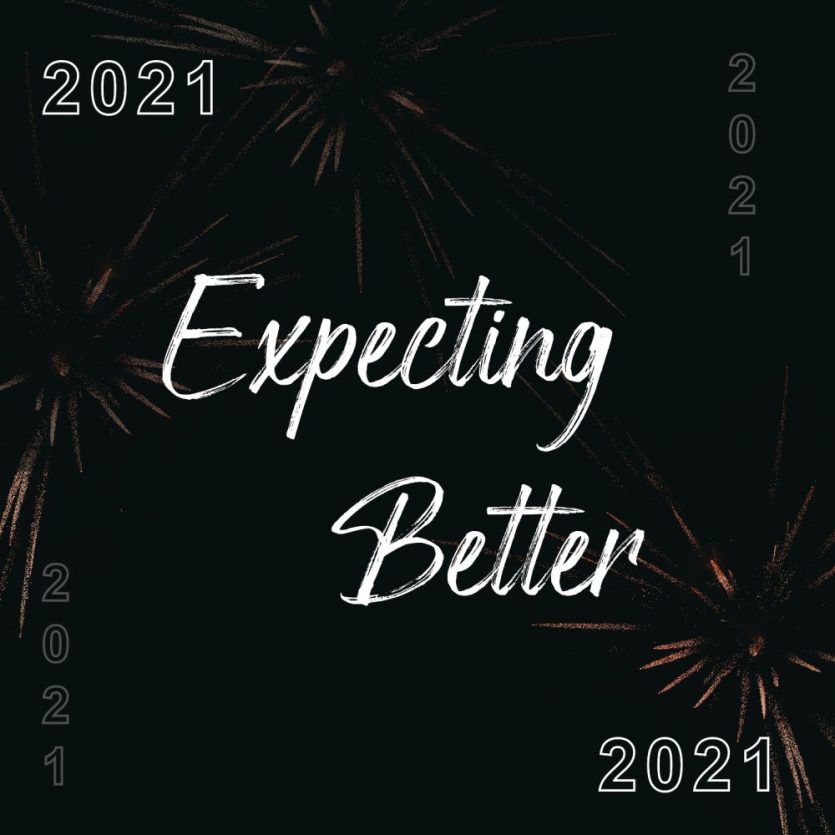With every transition from December 31 to January 1, we hope for a fresh start. We anticipate something better ahead than what we are leaving behind. We are glad to move into 2021, but we run the risk that our picture of a good new year is magnified by our human bent on what it means to expect better.
We have a propensity to measure our provision by the circumstances we find ourselves in instead of looking for God’s provision in the midst of our circumstances. We gauge God’s generosity by comparing what we hoped for against what we received. Our human nature leads us to equate doing right with going well and, when things are not going well, it’s natural for us to ask, “What did we do to deserve this?” After all, we already had a vision for what better circumstances look like but we make the mistake of expecting better on our own terms.
We have just celebrated the most pivotal event in all of history—the incarnation of Christ that was foreshadowed in the Old Testament centuries ahead of Messiah’s birth. Isaiah prophesied “Unto us a child is born, unto us a Savior is given.” Even in the opening chapters of Genesis, Scripture foretold that the Savior would come to ultimately crush the evil one. At the time of Jesus’ birth, Judea was under the tyrannical rule of Rome. Predictably, the Jewish people were expecting their Messiah would be a new king who would liberate them from Roman rule and bring renown to the Jewish people. Their human vision of an earthly king did not match God’s heavenly best.
The long-expected Savior came in the least expected way. The lowly surroundings and the humble animals for witnesses is not what the Jewish people predicted. This Christmas, I realized that imposing my hopes for my provision on top of God’s design is no different than our ancestors expecting the Messiah’s arrival to look like a conquering war hero instead of a baby in a manger. Christ’s earthly ministry and sacrificial death, although prophesied, seemed absolutely unorthodox at the time. Prophecy foretold a Savior, but it was the people’s limited, human belief about “better” that had them picturing Jesus as an earthly king reigning with power and majesty instead of a heavenly one serving sinners. What was hoped for in the minds of men was not what was received.
At that point in history, doing well certainly did not come with doing right. It strikes me that Mary and Joseph faithfully followed God’s instructions, but their obedience required sacrificing their home and reputation instead of gaining earthly comfort. The plague of their day was Herod’s sacrifice of the innocents, which, like the COVID virus, did not discriminate in which families would fall victim to immense suffering and loss. Instead of better being permission to stay and work from home, the angel’s instructions to Mary and Joseph were to literally run for their lives. Their obedience did not lead to a more promising year. Instead, they experienced exile to Egypt, an unknown timeframe, and ultimately three years of waiting to return home to a version of normal. I’m certain that wasn’t their idea of better, but it was still God’s provision.
Isaiah not only prophesied the coming of our Savior, he also made it clear that God’s ways are not just better—they are BEST. Isaiah 55:9 says, “As the heavens are higher than the earth, so are my ways higher than your way and my thoughts than your thoughts.” That was true in Bethlehem and Egypt 2000 years ago, was true in 2020, and will be true in 2021, even if what we hope for is not exactly what we receive.
What we can always rely on is that God is still sovereign, so His best is always greater than our version of better. Even as our journey back to normal takes longer than we hoped and even if it means entering our own Egypt for a while, we can trust that our Jehovah Jireh is always at work on our behalf. We might expect better, but we will receive His best when we trust that His plan is bigger, higher, and finer in the long run than anything we could wish for. Let’s help our students see that circumstances do not need to dictate our faith, our obedience, or our anticipation of God’s generous provision for our needs.

